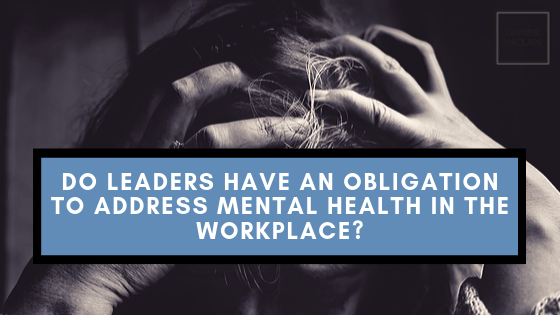More than ever before, people are finding themselves working harder and longer than ever before. The demands of our careers have always followed us home, yet with the advancement of technology there seems to be a breakdown in the walls that separate our professional lives from our personal lives. Such a shift is bound to have adverse side effects, and the biggest, most identifiable consequence revolves around our mental health.
Numerous studies have proven that employees are experiencing high levels of anxiety and burnout in the workplace. While it can be said that many companies are taking definitive steps to address the mental health of their employees, a stigma still exists when it comes to the employees actually speaking about their mental health needs. After all, no one wants to seem like they are incapable of doing their jobs due to their personal mental health battles—and so the problem persists.
So, knowing that mental health continues to silently plagues our employees, do we, as leaders, have an obligation to address mental health?
Recent research says yes.
Berlin Cameron and Kantar, a data insight and consulting company, recently conducted a study on mental health in the workplace. Their research found that out of a pool of 1,000 employees, 62% expressed that they would be more comfortable speaking about their mental health if someone in a leadership position discussed the subject openly and honestly.
Their research checks out considering the fact that stigmas are broken by openly communicating a normally silenced topic. Just acknowledging that mental health problems exist in the workplace is simply not enough. Instead, forging connections and trust on the topic through discussion is what makes all the difference—human connection is the key to creating a safe space to discuss mental health in our workplace.
With that said, there is, of course, a professional way to connect without being too personal. To an employee, a leader openly discussing how stressed out they are, or a leader who is too transparent with their emotions, may cause distress to their team and the others around them. To nail the balance between oversharing and not sharing enough, leaders can be open about their weaknesses and struggles as it pertains to their employee’s dilemma.
We all struggle with our mental health at some point in our lives, whether we’re dealing with grief, anxiety, depression, or trauma. As leaders, we need to present a united front—even in our professional lives—to ensure that no one feels they have to bear the weight of the world alone.

